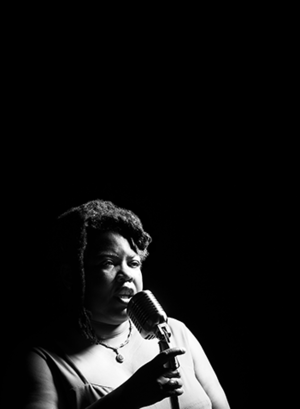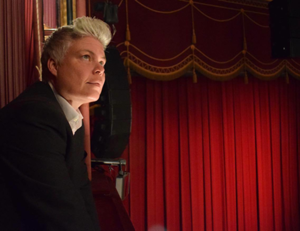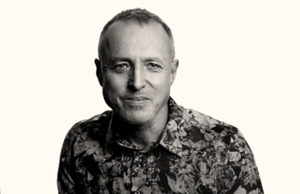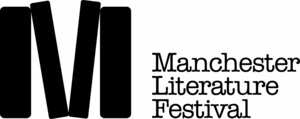A thriving centre of the Industrial Revolution, Salford had, in Ewan MacColl’s words, become a ‘Dirty Old Town’ by the twentieth century. This complex man, born in 1915, was a singer, songwriter, actor and labour activist who went on to become the undisputed leader of the British folk scene. But his story is also the story of working-class resistance in north-west England through the last period of the industrial age. BBC Arena’s The Ballad of Ewan MacColl combines music, history and politics to celebrate Ewan MacColl’s life and legacy, as told by those who knew him, including his wife Peggy Seeger, whose work is still committed to the radical politics of these times.
This evocative Arena film from the BBC archives, directed by Tim May, screened as part of Mancheter International Literature Festival. Exploring the relationship between culture and class politics which MacColl epitomised then and now, you can still watch responses to the film from performer Jennifer Reid, presenter and journalist Stuart Maconie and spoken word poet Tony Walsh, as well as an exclusive appearance by Peggy Seeger. Enjoy new poems inspired by the film from local poets Cheryl Martin and Ella Otomewo and learn how to start your own personal writing journey with a masterclass from acclaimed poet, playwright and lyricist Louise Wallwein.
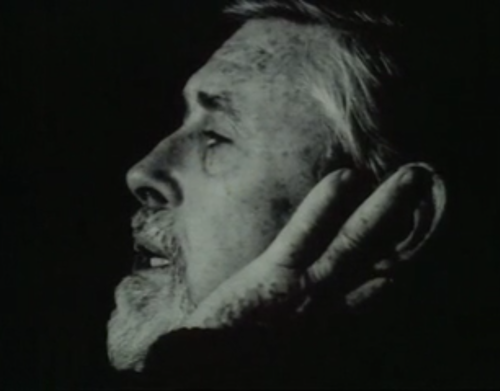
ARENA: THE BALLAD OF EWAN MACCOLL
Producer/Director: Tim May; Film Editor: Guy Crossman; Photography: Chris Seager; series director Anthony Wall
Ewan MacColl was a committed communist throughout his life. He was equally committed to his own creativity, always putting it at the service of his political beliefs. By turns, he was actor, playwright, actor manager, songwriter, radio legend and the leader and chief inspiration of the folk revival of the 1960s.
From his teens, he had complete confidence in the power and relevance of traditional song — and no one could sing those songs like MacColl. He was to a traditional ballad what Laurence Olivier was to a Shakespeare speech. He was a working-class renaissance man.
When director Tim May was only a few weeks into production, MacColl passed away at the age of seventy four. This sad news meant that May had to adjust his approach. MacColl was survived by his partner of thirty years, both in marriage and music, Peggy Seeger. She became the principal witness in the film. Theirs was one of the great love stories of the century. MacColl’s song writing, his voice and understanding of the power of the ballad, allied to Seeger’s stunning instrumental virtuosity, made them a musical phenomenon.
Born in New York, Seeger comes from an American musical dynasty. Her father Charles was an eminent musicologist; Ruth Crawford Seeger, her mother, was a composer. As a child, Peggy’s home was an informal salon for the great names of the folk revival in the USA. Woody Guthrie and Leadbelly were regular visitors. Her late half-brothers Mike and Pete shared Peggy’s instrumental brilliance. Like MacColl, Pete was a lifelong communist. He became the eminence grise of the New York folk scene, in parallel with MacColl in the UK. Peggy spanned both sides of the revival.
The BBC’s iconic Radio Ballads provided the platform for her first major collaboration with MacColl. They were produced by another avowed left winger, Charles Parker. The Radio Ballads revolutionised the idea of a radio documentary feature. They were a massive success. In 1958, the date of the first transmission, television was only just coming out of its infancy and radio still commanded a great audience for serious programming.
Each ballad took a theme from working-class life: mining, trawling, the railways. They combined the actual speech of the workers and the sound of their particular industry with music supervised by Seeger and songs written and sung by MacColl. These programmes were hugely influential, not least on Arena.
MacColl had a facility for songwriting. In the film Seeger reports that he wrote ‘Dirty Old Town’, one of his very best, in ten minutes to cover a scene change in one of his plays. Most famously, he wrote the song that became a worldwide hit for Roberts Flack, ‘The First Time Ever I Saw Your Face’. It became one of the most recorded songs of all time. MacColl wrote it for Seeger.
Most of his songs expressed his politics, fierce denunciations of the injustices and wrongs he saw in industrial capitalism. He was composing them right to the end. While his musical reputation is secure, the other aspect of his work, the theatre, has been largely forgotten. As with the songs, he believed theatre should be an instrument to fight oppression and critique the capitalist system.
In the years after the war he was acclaimed as a dramatist. His success prompted George Bernard Shaw to say that MacColl, along of course with himself, was the only true genius of the British theatre. Eventually he withdrew from the theatre, exasperated with the increasing dominance, as he saw it, of the commercial and fatuously populist.
Theatre’s loss was folk music’s gain. The folk revival which swept both sides of the Atlantic went on to produce folk rock and influence any number of great musicians. The essence of traditional song can be heard in the core even of Led Zepellin. An Arena made twenty years after this one, a profile of Pete Doherty, featured Doherty singing ‘Dirty Old Town’ with Shane MacGowan and Kate Moss.
I found my love on the gasworks croft
Dreamed a dream by the old canal
Kissed my girl by the factory wall
Dirty old town Dirty old town
The song will live forever. It sums up MacColl’s spirit and his belief that joy of living could be found even in the grime and the grind of factories, gasworks and filthy canals.
Anthony Wall
6 October 2020
YOUR LOCAL ARENA: RESPONDING TO The Ballad of Ewan MacColl
Watch acclaimed ballad performer Jennifer Reid, DJ and writer Stuart Macone, and Tony Walsh, Manchester’s people’s poet, respond to the Arena film. Plus hear American folk singer Peggy Seeger, wife of Ewan MacColl, talk about the film and sing a tribute to her late husband.
Responding to the film
INSPIRED BY ARENA’S The Ballad of Ewan MacColl:
New Poetry by Ella Otomewo and Cheryl Martin
Cheryl Martin
‘My Salford Is Full of Flowers’
Commissioned Poets
WRITING YOUR MEMOIR: A Masterclass from Louise Wallwein
Taking Arena’s The Ballad of Ewan MacColl as a starting point, explore how you can begin to craft your own memoir or life writing with poet, playwright and lyricist Louise Wallwein.
Interviews
Lucy Hannah with Tim May
Lucy Hannah with Richard Shaw

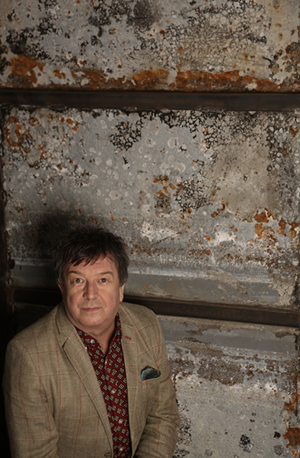
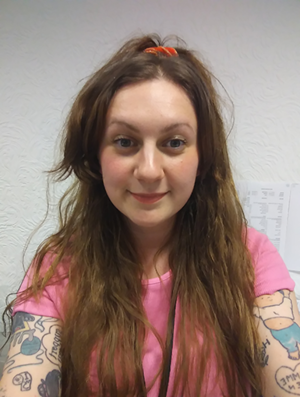
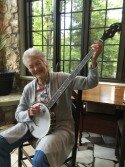
+Grey+Trilby.png)
